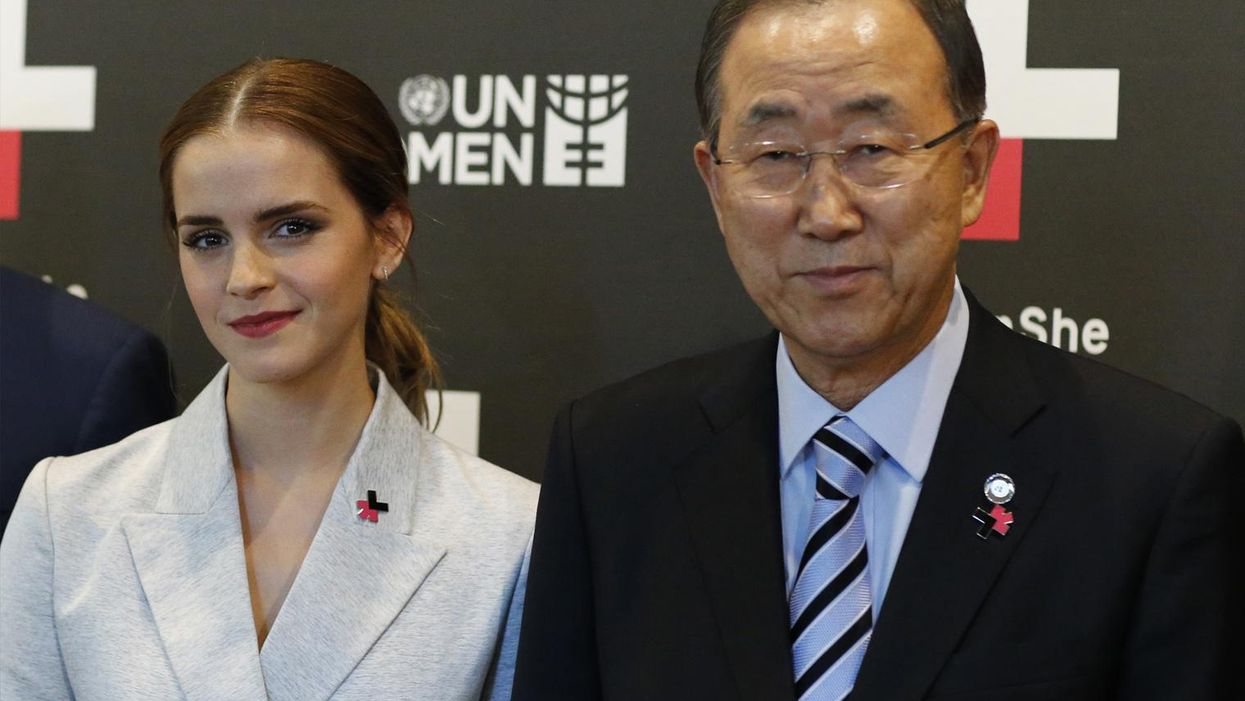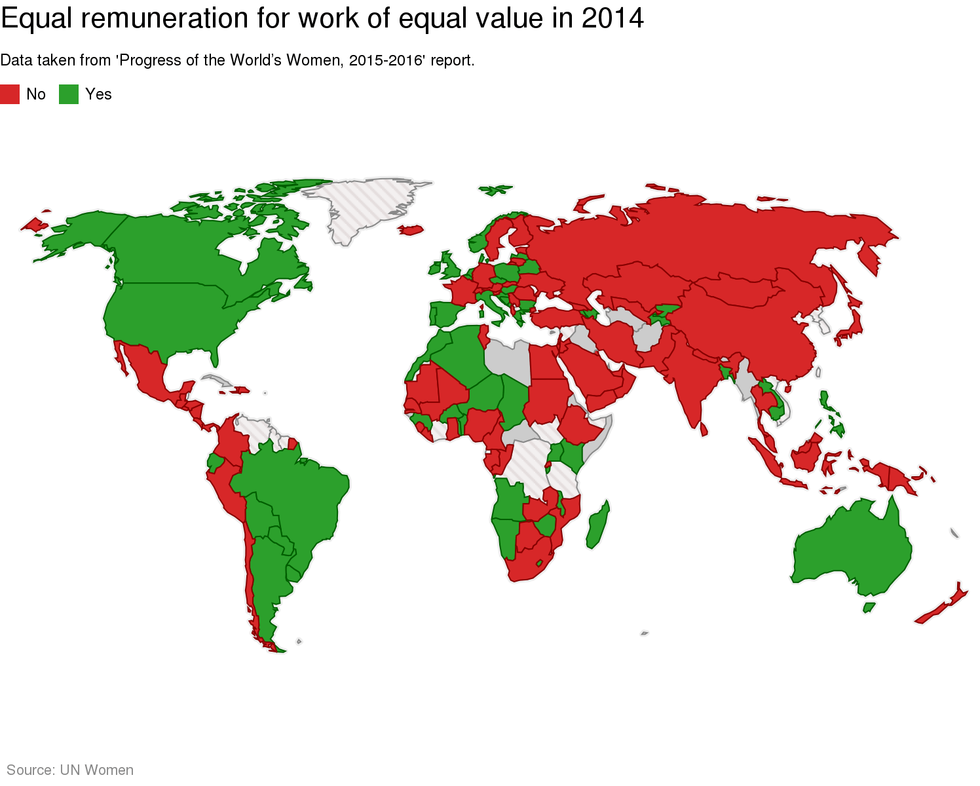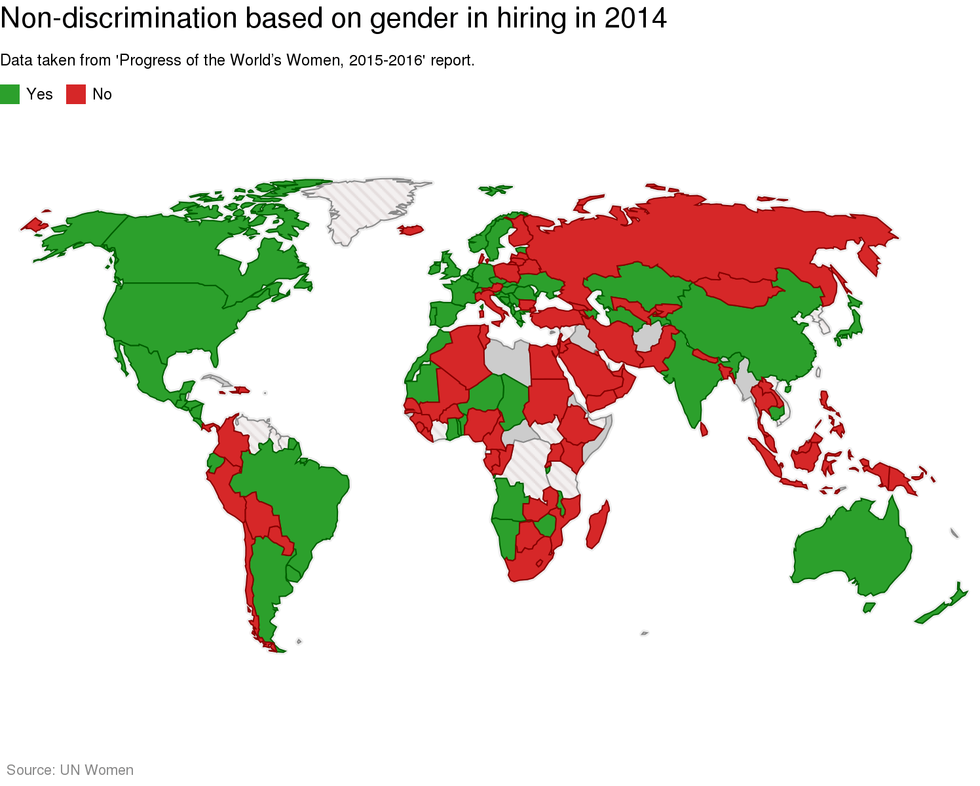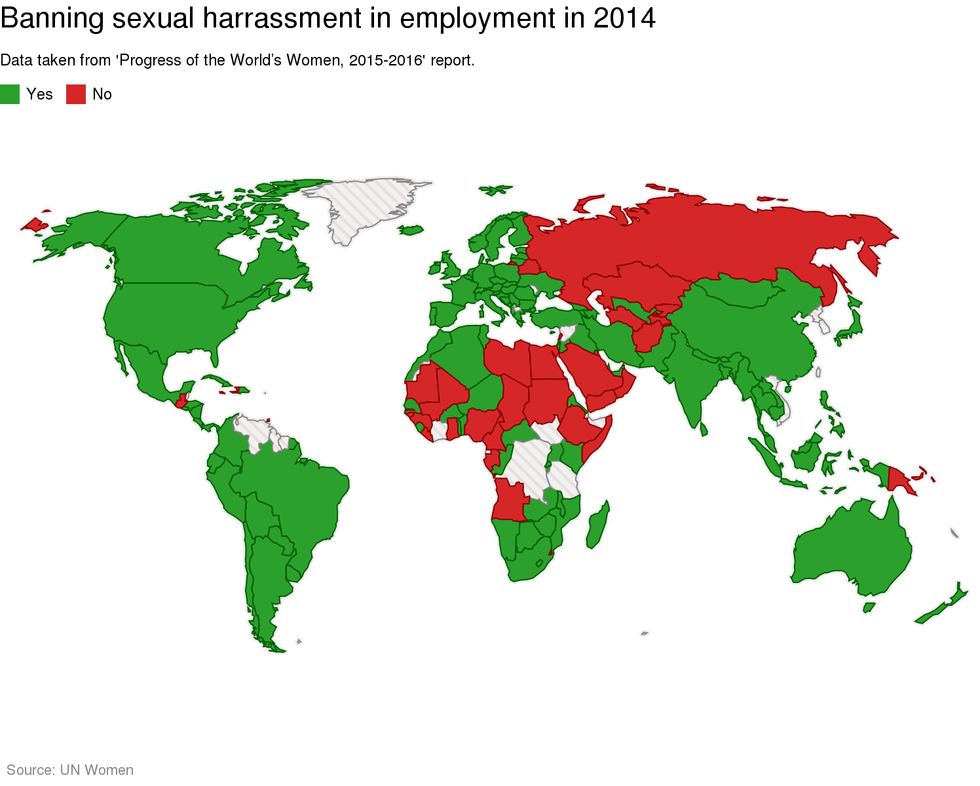News
Louis Dor
Jul 09, 2015

UN Women Goodwill Ambassador Emma Watson and UN Secretary General Ban Ki-moon
The UN has revealed the extent to which equal rights between sexes are improving throughout the world.
The report, titled “Progress of the World’s Women, 2015-16”, focuses on the economic and social dimensions of gender equality.
Factors ranged from the right of all women to a good job, with fair pay and safe working conditions, to an adequate pension in older age, to health care and to safe water, without discrimination based on factors such as socioeconomic status, geographic location and race or ethnicity.
In the executive summary, the report said:
As the report shows, these inequalities are not inevitable.
Economic and social policies can contribute to the creation of stronger economies, and to more sustainable and more gender-equal societies, if they are designed and implemented with women’s rights at their centre.
While there are many positives to the report, there are also areas that draw concern.
The gap between rich and poor women remains vast both between and within countries. A woman in Sierra Leone is 100 times more likely to die in childbirth than a woman in Canada.
In addition, the report has concluded that changes in the global economy and policies have affected both sexes harshly.
Economic policies have failed to create enough decent jobs, making it difficult for people to work their way out of poverty. This is particularly true for women, who are overrepresented among those in precarious, informal and low-wage employment.
The report changes in the global economy have not been beneficial for the majority of men either.
For example, in some countries where gender pay gaps have narrowed this has been in the context of falling real wages for both women and men, and the gaps have narrowed only because men’s wages have fallen more dramatically than women’s.
This can hardly be considered ‘progress’, as instead of women catching up with men, there is a levelling down for all.
The report called for greater focus on marginalised women, instead of assessing averages:
Progress towards substantive equality should be measured against how inclusive it is of the rights of poor and marginalized women and girls. It is therefore important to look beyond ‘averages’ to make sure that all women are able to enjoy their rights.
The report also revealed the status of equal workplace rights across the world, from which we have made the following maps:
More: There's an app that will send you an alert when you're near a spot a woman made history
Top 100
The Conversation (0)















